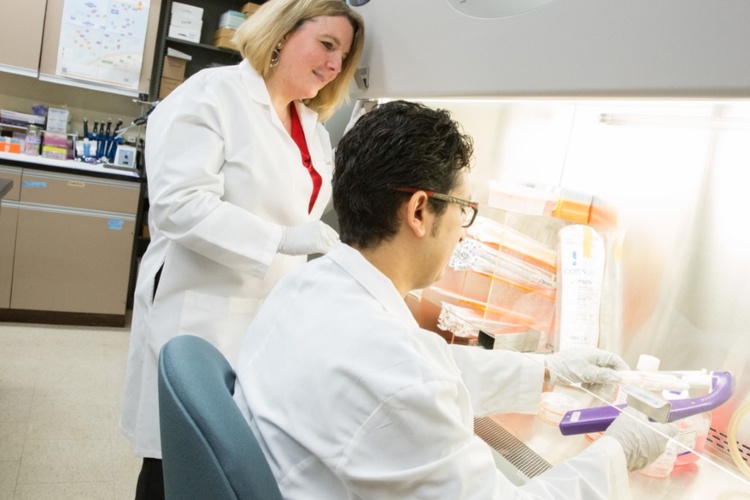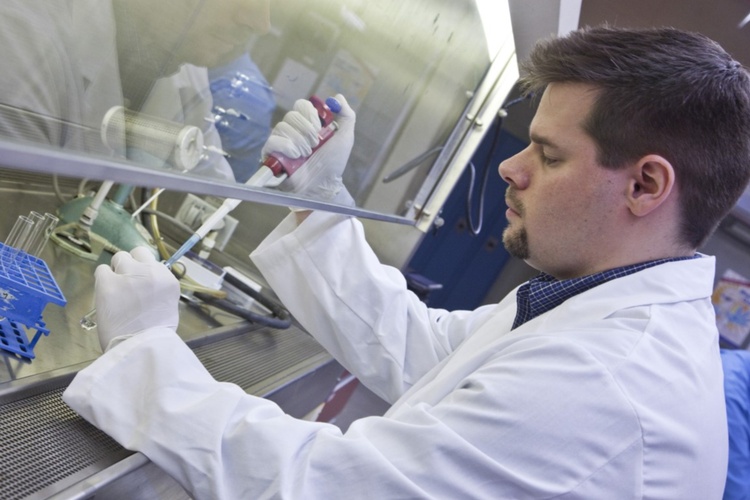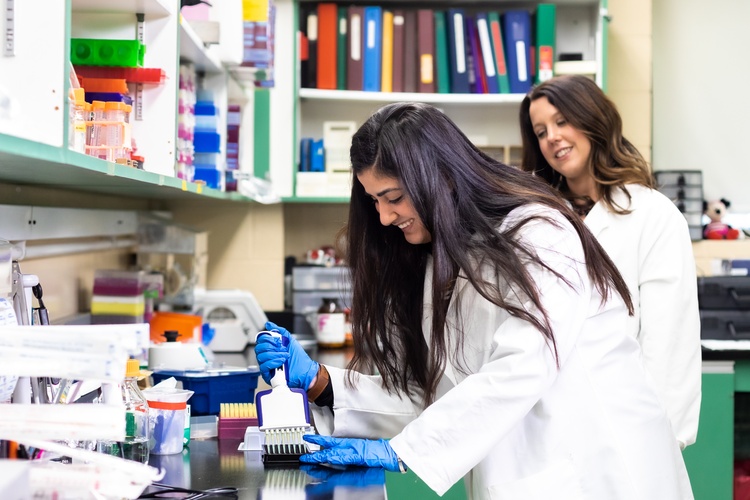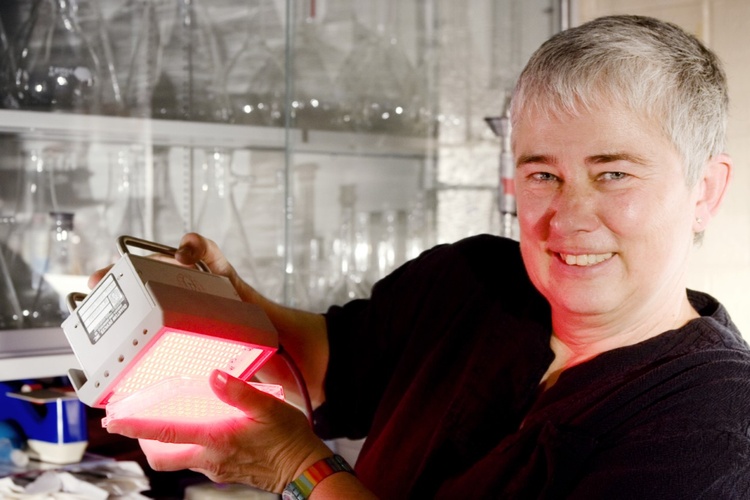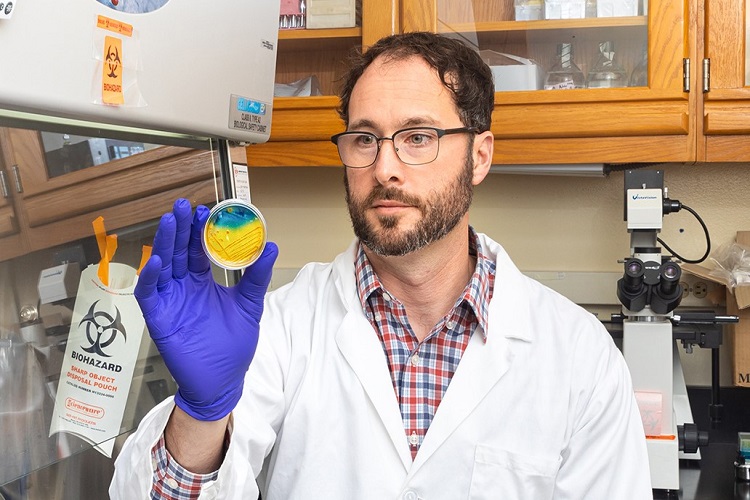Research
Fulfilling its research mission daily, the School of Biomedical Sciences & Health Care Administration has one of the most robust scientific research operations at the university.
Within the UWM School of Biomedical Sciences & Health Care Administration, many of our faculty, staff and students work in research and instructional laboratories and with research centers.
Their work encompasses groundbreaking and pioneering investigations, including vital research in the areas of health and wellness across the lifespan, health care information systems, pathogenisis and biomedical technologies.
Innovative Research
The School of Biomedical Sciences & Health Care Administration is doing exciting research that is making a difference in the lives of people in Wisconsin and world. Some of the diseases and conditions our faculty, staff and students are investigating are Lyme disease, macular degeneration, prostate cancer, biomedical informatics, health care information systems, molecular signaling mechanisms in disease, antibiotic resistance and alternative antimicrobial treatments.
Research Partnerships
- Health Care Administration is a sponsoring member of Center for Urban Population Health. CUPH’s mission is to conduct and facilitate original population health research and educational initiatives that improve the health of urban communities through collaboration with academic and community organizations.
- Many Biomedical Sciences & Health Care Administration faculty are research partners of the Clinical and Translational Science Institute. CTSI was founded in 2008 as a regional academic-community partnership between four area academic institutions (Medical College of Wisconsin, University of Wisconsin-Milwaukee, Milwaukee School of Engineering and Marquette University), three hospitals (Froedtert Hospital, Children’s Wisconsin and Zablocki VA Medical Center); and Versiti Blood Center of Wisconsin. It aims to develop an integrated, shared home for clinical and translational research, education and training, hallmarked by a borderless, collaborative, synergistic and investigator/community/patient-friendly environment.
Statistical consultation can be provided in all stages of a research project.

